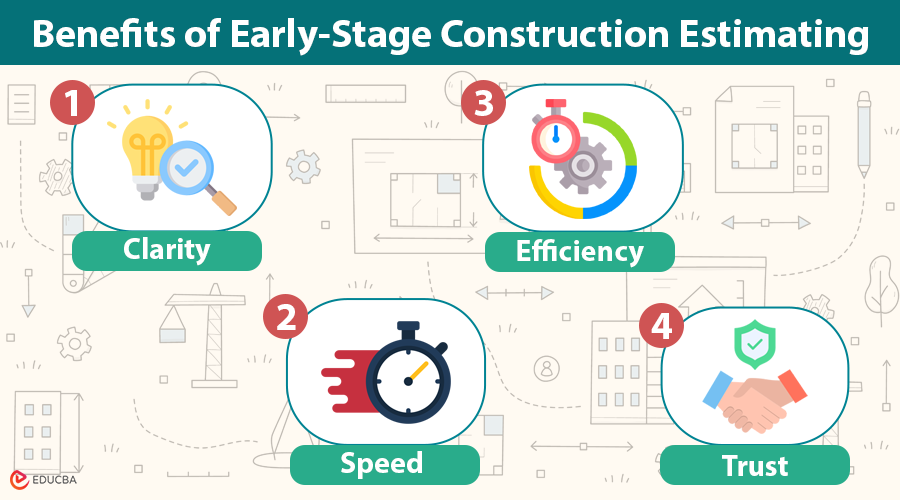
Why Estimating Should Be the First Step in Every Project?
In the fast-paced world of construction, planning often races ahead of budgeting. Architects draft designs, engineers refine structures, and contractors rush to schedule crews all before anyone knows what the project will cost. This is a risky way to build, especially in 2025, where costs, timelines, and labor availability fluctuate rapidly. Smart construction companies are changing their approach by making construction estimating the very first step. They no longer treat it as a formality after design approval, but as the foundation for every other decision.
The Cost of Starting Without a Budget
Imagine going on a long road trip without checking fuel prices, planning your route, or guessing how long it will take. You may reach your destination, but you will likely burn through your budget, waste time, and face frustrating detours.
Construction projects are no different. Starting without a detailed construction estimating process is like flying blind. Contractors risk underpricing bids, overpromising timelines, or committing to scopes they cannot deliver. Worse, once a project starts to go over budget, it is difficult — and expensive — to correct the course.
Early-stage construction estimating mitigates this risk. By identifying scope, materials, labor needs, and potential bottlenecks before the project kicks off, teams gain clarity on whether the plan is feasible and where adjustments can save money without sacrificing quality.
Why Construction Estimating Deserves a Front-Row Seat?
For decades, construction teams have treated estimating as a back-office function and delegated it to the end of preconstruction. However, modern construction demands more collaboration, data-driven decisions, and risk mitigation. Estimating, when done early and accurately, brings all three.
Here is what early-stage construction estimating brings to the table:
1. Clarity
A well-developed estimate provides a financial snapshot of the project, breaking down costs by trade, material, labor, and schedule. This clarity helps stakeholders make smarter decisions early on before missteps get expensive.
2. Speed
Early construction estimating allows for faster design approvals, budget buy-in, and permit applications. Instead of going back and forth on changes later, decision-makers can align around accurate numbers from day one.
3. Efficiency
By identifying cost drivers up front, construction estimating can streamline procurement and scheduling. If concrete or millwork costs are unusually high, those trades can be addressed in the value engineering phase, not during installation.
4. Trust
Clients appreciate transparency. When a contractor provides a clear, data-backed cost breakdown early in the process, it builds confidence and positions them as a true partner, not just a service provider.
The Role of Technology and Specialized Support
The rise of digital takeoff tools, AI-powered cost platforms, and cloud-based collaboration has transformed the construction estimating process. Now, estimates are more accurate, more detailed, and faster to produce than ever before.
At the same time, many firms, especially small and mid-sized contractors, are turning to external support to fill internal gaps. Outsourcing construction estimating to professionals provides flexibility and ensures accuracy, especially on complex scopes or tight deadlines.
This is where the value of a professional estimating company truly shows. Instead of rushing bids or guessing at costs, contractors can lean on experts with trade-level knowledge and deep market insight. This gives teams the confidence to quote competitively and profitably.
The Strategic Advantage of Accurate Construction Estimating
In a competitive environment, the lowest bid is not always the winning bid. Owners and developers want partners who understand the financial implications of every line item and who can deliver without surprise change orders or cost escalations.
Accurate estimating is not just about numbers. It is about demonstrating professionalism, building trust, and showcasing operational maturity. In this sense, construction cost estimating services are not just technical tools; they are strategic assets.
Contractors who prioritize construction estimating early can:
- Reduce bid errors
- Minimize post-award changes
- Improve communication between field teams and decision-makers
- Win more projects by showcasing reliability and foresight
Final Thoughts
As the construction landscape continues to evolve, one principle remains constant: projects that start strong finish strong. And nothing starts a project off stronger than a clear, accurate construction estimating process.
Estimating should no longer be a checkbox near the end of preconstruction. It should be the starting line of the data-driven launchpad for smart planning, informed budgeting, and seamless execution.
Whether you are a contractor bidding on private work or a developer managing multiple scopes, making estimation your priority will lead to better outcomes, stronger margins, and happier clients.
Recommended Articles
We hope this guide on construction estimating helps you lay a strong foundation for smarter, more profitable projects. Explore these recommended articles for expert insights into cost planning, preconstruction strategies, and contractor best practices.
- Construction Management Strategies
- Construction Debris
- Automation in Construction Management
- How to Manage Construction Projects Effectively: Tips and Strategies